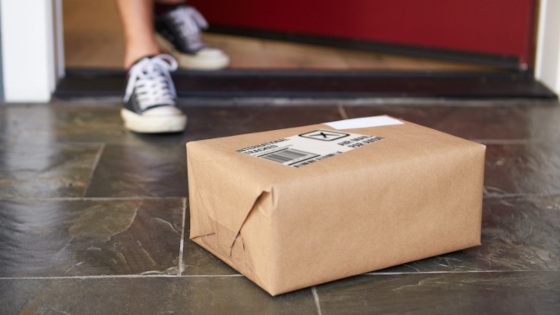Quick Links
Related Topics
Amazon FBA Packaging Requirements and How an FBA Inspection Can Help
If you sell on Amazon, one of the most eye-opening things you can do is to take a look at the reviews of other businesses. In particular, read some of the comments against the low-star reviews.
You will soon spot a pattern. When customers are unhappy, it's often because of a quality issue. The product or box arrived damaged or wasn't what they expected to buy.
It's the fastest way to put the breaks on a thriving business. But you can avoid facing the same issue.
Read on to learn about Amazon FBA packaging requirements and how to ensure the best product and packaging quality for everything you sell on the platform.
FBA On Amazon: A Brief Overview
FBA (Fulfillment By Amazon) is one of Amazon's most popular seller models. In a nutshell, it allows the seller to ship wholesale goods to Amazon, where Amazon stores them in one of its warehouses.
When a customer places an order, the Amazon warehouse sends the product directly to the customer.
It's ideal for small e-commerce businesses who don't want the hassle of stock management and want to tap into Amazon's vast audience and logistics operation.

Amazon, naturally, needs to protect its brand and reputation. So, they have specific standards for any business using their FBA model. These aren't only to ensure they reach a certain professional standard.
It's also a safety and compliance issue, as well as a practical one - Amazon must be able to handle and process goods efficiently.
That helps reduce return rates, complaints, and legal penalties. From that perspective, it's easy to see why Amazon takes standards so seriously.
Amazon FBA Packaging Requirements
Packaging is a significant factor in Amazon's operations. Their standards help cover issues like safety, logistics, and efficiency.
The robustness of packaging items is also crucial because it protects the inner products during shipping and delivery, reflect the quality of your brand, and increase customer satisfaction with their purchase, leading to less returns.
Therefore, you'll find different packaging requirements depending on the product type.
For example, imagine you are selling a glass product, like a vase. That must be packed with extra secure cushioning inside the main box to prevent breakages.
Similarly, you must keep liquids in protective cases that will prevent leakages. You also need to consider that some larger packages require more robust containers to withstand their weight.

Amazon also has strict rules about product assembly. You cannot ship different elements separately and expect Amazon to assemble them into one package.
All goods must be ready to ship directly to the customer with minimal intervention from Amazon's logistics team.
FBA and Label Requirements
Alongside packaging, you must also follow rules about how you label things. The FBA labels help the logistics team move the packaging along the correct route.
For example, when writing the product title on the label, it must be an exact match for your product title on your Amazon FBA listing.
The rules extend to more specifics, such as capitalizing the title correctly and limiting the character count. In other words, labeling criteria are highly precise.
Barcodes are also vital for labeling and shipping your products. You must have either the manufacturer's barcode or one supplied by Amazon (like an ASIN). If you have product variations (like different colors), you'll need separate barcodes for each variation.
If you fail to follow the necessary rules, Labels should be attached to a smooth surface for easy scanning, avoiding corners, edges, and curves. If your products require extra package, like bubble wrap or wood frames, make sure your label is on the outside so the FBA centers can scan.

The Importance of Following Amazon's Rules
It's crucial to your FBA business's long-term success that you know the packaging rules and how to follow them. You also need to stay up-to-date with new or changed requirements issued by Amazon.
If you don't, the effects can range from a minor nuisance for your business to a massive long-term impact, depending on the issue.
For example, you could find intermittent problems with your shipping, such as delays, if you have a minor issue with your packaging, like a mismatch of quantities between what you list on your Amazon account and what you ship.
Repeated problems could damage customer trust, and you may find yourself with poor Amazon reviews, which can hurt future sales performance.
If your products are damaged, you'll incur the costs of returns and replacements.
Persistent problems, however, could have a disastrous impact and, in the worst-case scenario, lead to a suspension from Amazon. So, you must take time to ensure you comply with FBA requirements and never assume it's optional or mere guidance.

How To Stay Compliant
A few simple actions can ensure you always stay compliant with Amazon's FBA rules.
Aside from signing up for the latest email updates from Amazon, working with a trustworthy third-party quality control company to conduct FBA inspection is another efficient way.
By engaging with a professional third party, you can collaborate with a team that understands both Amazon FBA requirements and product quality specifications. During the FBA inspection, the inspector will assess your products' packing, packaging, and labeling to ensure compliance with the Amazon FBA requirements.
The inspector will check important checkpoints such as the size of the boxes, the size of the labels, and information on the labels to see if they comply with FBA requirements. These are essential to ensure that your products can be accepted by Amazon FBA warehouses. This way, you can rest assured that your products meet Amazon's standards and avoid any potential issues that could hurt your sales.
Conduct FBA Inspection When Shipping Direct from Suppliers
Many FBA sellers ship directly from their wholesale suppliers to Amazon. That's popular when sourcing overseas or for those businesses that want to keep their warehouse costs to a minimum. But this does pose a challenge in ensuring your packaging and labeling are up to FBA standards. Under this circumstance, hiring an inspection team to conduct FBA inspection can help you out.

Many FBA sellers ship directly from their wholesale suppliers to Amazon. That's popular when sourcing overseas or for those businesses that want to keep their warehouse costs to a minimum. But this does pose a challenge in ensuring your packaging and labeling are up to FBA standards. Under this circumstance, an inspection team can be your eyes and ears overseas.
Firstly, a third-party inspection team can directly work with your suppliers overseas. You can see them as an extension of your business network, securing your global sourcing strategy.
Secondly, a third-party inspection team can help to ensure FBA compliance by FBA inspection. The inspector will carefully check the packing box, the FBA label size, the FNSKU, and other elements per FBA requirements. This can help to ensure your products are accepted by Amazon FBA warehouses and are shipped to your customers successfully.
On top of the above, your product quality will also be addressed during an FBA inspection. The inspector will select several products from the whole batch based on AQL (Acceptable Quality Limit), which is a global standard for inspecting product batches. Then, the inspector will check the workmanship, appearance, and functionality, and run on-site tests on your selected finished products to test the real-life users' experience. High-quality products can lead to satisfied end customers, high product ratings, and higher ranking on Amazon.
Plus, a professional third-party inspection team has developed detailed & specific FBA checklists per different product types to make sure your products are up to your specific requirements.

The Benefits of Using a Third-Party Inspection Team for Your FBA Shipping Requirements
Using a third-party inspection team is one of the best ways to get quality assurance on everything you sell on Amazon.
Amazon FBA regulations constantly change, and it can be hard to keep up with all the updates and stay compliant. But working with a third party, you can liaise with a team of experts checking the latest FBA requirements to ensure you are on top of the game.
Moreover, a third-party inspection company can enhance your ecommerce reputation by ensuring product quality. They can help to identify defects in the products before reaching your end customers. This helps to gain better ratings, higher ranking, and consistent sales improvement.
All that is fundamental to achieving a fast-growing business on Amazon.
A third-party inspection team is also an intelligent use of your time.
Doing it yourself means researching and understanding quality and packaging rules and knowing how to carry out relevant checks. In contrast, a third party has established processes for this and can hit the ground running.
That leaves you time to get on with other business priorities, such as finding new products or marketing your brand.

Fulfillment By Amazon: Developing a Premium Brand
Reputation is hard won and easily lost, as the saying goes, which is why your quality standards are vital to the success of your business.
Make sure you get expert help with your Amazon FBA packaging requirements to achieve that high-quality brand that has a long-term future on Amazon.
Take the next step now by booking your first inspection with our team at eAQF.
With eAQF, you can book and manage quality control solutions easily online, receive and review your quality reports immediately once they are ready, and access real-time data 24/7. Are you ready to improve your e-commerce business with effective quality control? Register for eAQF today and get started!





